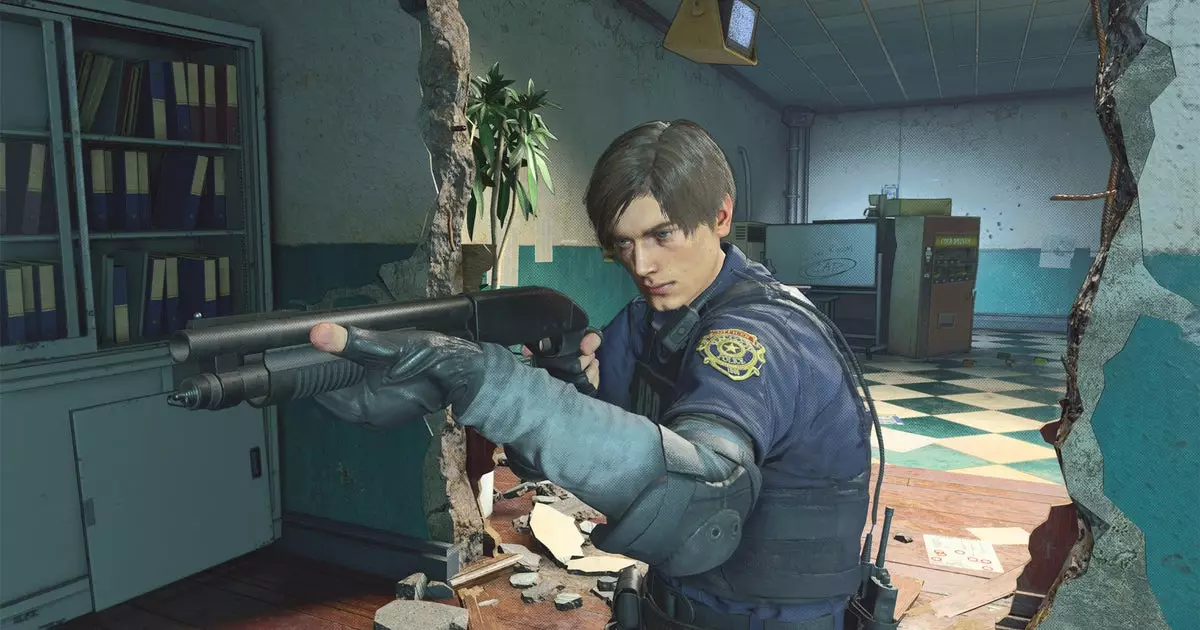As the dust settles on Capcom’s audacious attempts to fuse its iconic horror franchise with the multiplayer phenomenon, the abrupt shutdown of Resident Evil Re:Verse echoes a familiar narrative. Despite the aspirations surrounding this title, it never garnered the widespread acclaim it aimed for, and its demise brings forth critical reflection on the franchise’s approach to online gameplay. Launched to celebrate the series’ 25th anniversary, Re:Verse fizzled into obscurity, peaking at a mere 2,080 concurrent players on Steam—far below impressive benchmarks like Counter-Strike. In what can only be characterized as an act of mercy, Capcom has officially dismantled the game’s infrastructure, effectively erasing it from its catalog, accompanied by a shrug rather than a salute.
The Double-Edged Sword of Nostalgia
Re:Verse was conceived as a love letter to the franchise’s storied past, incorporating familiar faces and features from earlier games. Players could embody notorious characters like Jack Baker while navigating a chaotic battleground. Yet, the nostalgia that sparked interest in the game ultimately morphed into a detriment. The attempt to draw on memories of past glories left an underlying feeling of unfulfillment. In a direct comparison, nostalgic gameplay elements served only as a reminder of previous successes, failing to ignite fresh excitement or innovation.
Capcom’s efforts to reimagine multiplayer experiences within an established single-player narrative reeked of desperation, suggesting a lack of confidence in the power of its core gaming proficiency. Rather than breathing life into the franchise through evolution and new multiplayer creativity, it navigated the safer path of familiarity without delivering enough substance.
The Cautionary Tale of Resident Evil Multiplayer
Capcom’s journey to craft a successful online component for Resident Evil can be likened to a horror movie gone awry. In its earlier entries, notably Resident Evil 5, co-op gameplay areas were met with praise, showcasing that the franchise could adapt and thrive in a collaborative setting. However, the aim has often felt scattershot, each release attempting to recapture lightning in a bottle while failing to capture the essence of what made Resident Evil genuinely thrilling.
Games like Resident Evil: Operation Raccoon City exemplify the pitfalls of this experimentation. Dubbed as a misfire, they left players yearning for the heart-pounding emotional intensity synonymous with Resident Evil’s single-player experiences. Capcom’s attempts to resurrect multiplayer components, like Outbreak in 2003, also fell short; their reliance on dated technology and execution meant that while the ambition was there, the realization was notably lacking.
Facing the Harsh Reality of Online Gaming
With the avalanche of games sporting online features crashing down around them, Re:Verse’s death knell isn’t surprising in today’s gaming landscape. According to industry studies, around 70% of online-dependent gaming experiences find themselves on the chopping block after failing to sustain a committed user base. Capcom’s latest decision reflects an acknowledgment of this brutal reality—a willingness to let go of high-profile failures rather than wasting resources in pursuit of a dream that the players never truly bought into. The graveyard of ill-conceived online games swells once more with Capcom’s attempt to marry its cherished horror universe to multiplayer chaos.
What Lies Ahead for Resident Evil’s Multiplayer Aspirations?
Despite this setback exemplified by Re:Verse, whispers surrounding future iterations of Resident Evil multiplayer experiences, such as mentioned developments in Resident Evil Requiem, indicate that Capcom is not ready to concede defeat entirely. Perhaps the greater lesson here transcends just the complexity of multiplayer offerings; it may be about understanding player expectations and molding innovations that resonate with long-standing fans.
Moving forward, any new venture must deftly balance nostalgia with progress, ensuring that while the past is acknowledged, it does not drown out the need for fresh, thrilling gaming experiences. Capcom must navigate these treacherous waters carefully, demonstrating that innovation within beloved franchises does not need to come at the cost of what fans cherish most. The future of Resident Evil depends on learned lessons from failures like Re:Verse, paving the way for an online experience that thrills rather than disappoints.

